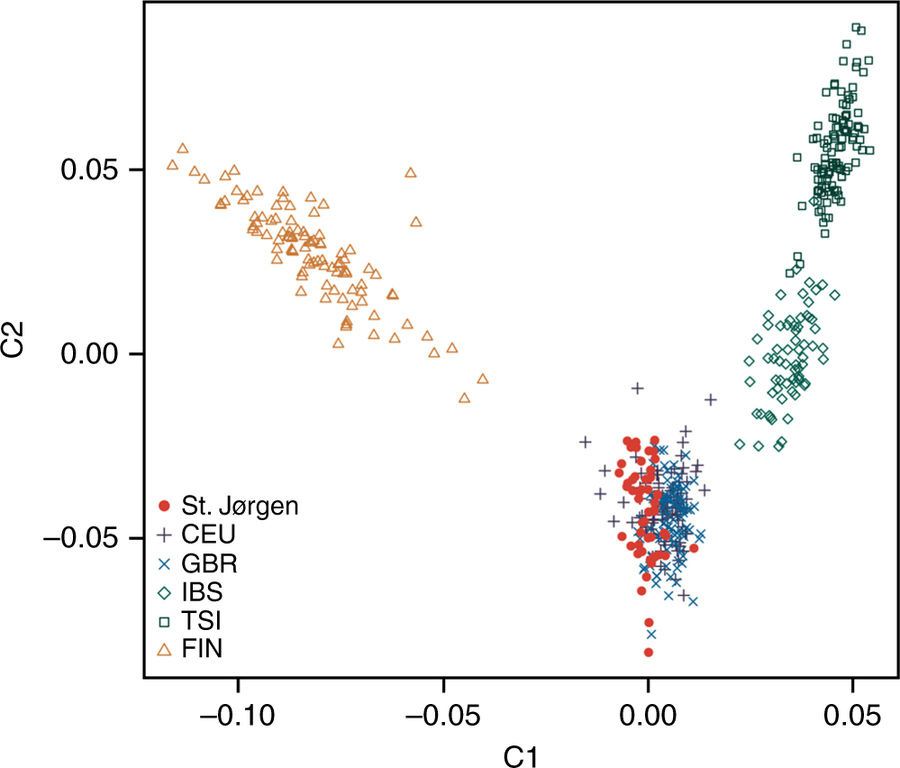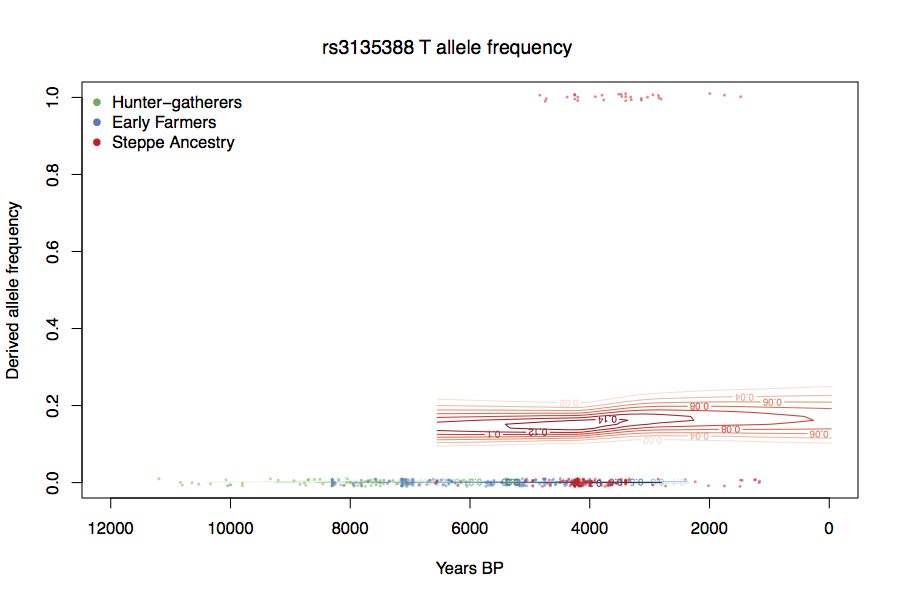Open access Ancient DNA study reveals HLA susceptibility locus for leprosy in medieval Europeans, by Krause-Kyora et al., Nature Communications (2018)
Abstract:
Leprosy, a chronic infectious disease caused by Mycobacterium leprae (M. leprae), was very common in Europe till the 16th century. Here, we perform an ancient DNA study on medieval skeletons from Denmark that show lesions specific for lepromatous leprosy (LL). First, we test the remains for M. leprae DNA to confirm the infection status of the individuals and to assess the bacterial diversity. We assemble 10 complete M. leprae genomes that all differ from each other. Second, we evaluate whether the human leukocyte antigen allele DRB1*15:01, a strong LL susceptibility factor in modern populations, also predisposed medieval Europeans to the disease. The comparison of genotype data from 69 M. leprae DNA-positive LL cases with those from contemporary and medieval controls reveals a statistically significant association in both instances. In addition, we observe that DRB1*15:01 co-occurs with DQB1*06:02 on a haplotype that is a strong risk factor for inflammatory diseases today.

The study shows mtDNA haplogroups comparable to those of northern Europeans today, and findings in general indicate no major genome-wide changes in the Danish population structure in the past 1000 years.
The paper may be of interest for earlier migrations:
Discovered via Iain Mathieson:
Interesting paper on leprosy and leprosy resistance alleles in Medieval Denmark: https://t.co/AAkDubowVT
Note that the rs3135388 T allele was introduced to Europe by Bronze Age Steppe migrations.
Did they bring leprosy as well as plague? pic.twitter.com/VEwhWqs1r8
— Iain Mathieson (@mathiesoniain) May 2, 2018
Related:
- Stone Age plague accompanying migrants from the steppe, probably Yamna, Balkan EBA, and Bell Beaker, not Corded Ware
- Mixed haplogroups R1a, R1b, I, in collective burials of early Medieval Bavarians
- Genomic analysis of Germanic tribes from Bavaria show North-Central European ancestry
- Germanic tribes during the Barbarian migrations show mainly R1b, also I lineages
- mtDNA suggest original East Germanic population linked to Jutland Iron Age and Bell Beaker
- Bell Beaker/early Late Neolithic (NOT Corded Ware/Battle Axe) identified as forming the Pre-Germanic community in Scandinavia
- Olalde et al. and Mathieson et al. (Nature 2018): R1b-L23 dominates Bell Beaker and Yamna, R1a-M417 resurges in East-Central Europe during the Bronze Age
- Admixture of Srubna and Huns in Hungarian conquerors
- The concept of “Outlier” in Human Ancestry (III): Late Neolithic samples from the Baltic region and origins of the Corded Ware culture
- Genetic prehistory of the Baltic Sea region and Y-DNA: Corded Ware and R1a-Z645, Bronze Age and N1c
